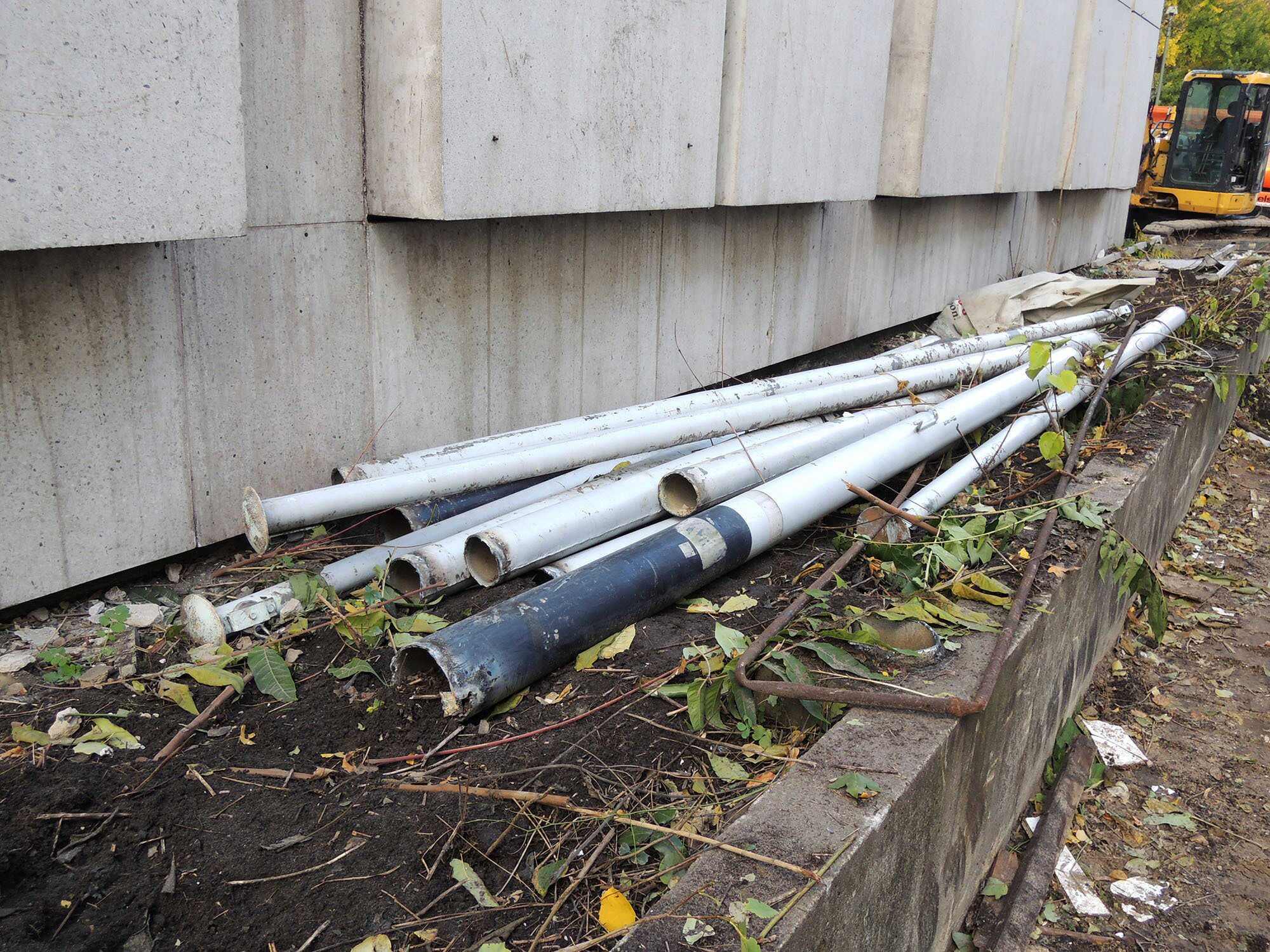Klima Biennale Wien
2024
05.04. – 14.07.


© Photo: Abgebaute Fahnenmasten (c) Christof Zwiener
vanishing structures. Politics of Disappearance examines the issues and social, political and environmental conditions associated with the disappearance of architecture, landscapes, people and traditions. The artistic and research-based approaches brought together in the exhibition open up different perspectives on local and geopolitical issues and contexts.
In this context, disappearance refers to both gradual processes that often go unnoticed, or are only noticed by a few, and rapid upheavals that result in sudden, immediate and tangible changes. Fading, fading away and disappearing are considered synonymous in the context of the project and are united in vanishing structures. The concept of structure here stands for tangible arrangements such as urban space, existing systems such as the environment or economic cycles, but also for social structures or collective memories that are less tangible but nevertheless affected by the politics of disappearance.
The participating artists work in different local and cultural contexts and with different artistic approaches to the politics of disappearance, allowing for a translocal view of the issue. Both Karolina Freino (1978 / PL) and Christof Zwiener (1972 / DE) deal intensively with changes in urban space against the background of historical contexts and examine historiography and its gaps. Who decides what is remembered? Collective memory also informs the work of artist Maha Yammine (1986 / LBN), who explores her family history, which was heavily influenced by the Lebanese civil war that broke out in 1975. Chan Sook Choi (1977 / KR) is concerned with a society that is constantly confronted with the possibility of military conflict. Through artistic research, she traces the realities of life for women living in model settlements in the demilitarised zone between North and South Korea.
As the climate crisis deepens, issues such as excessive extractivism and the global flow of commodities must also be considered: Ana Alenso (1982 / VEN)